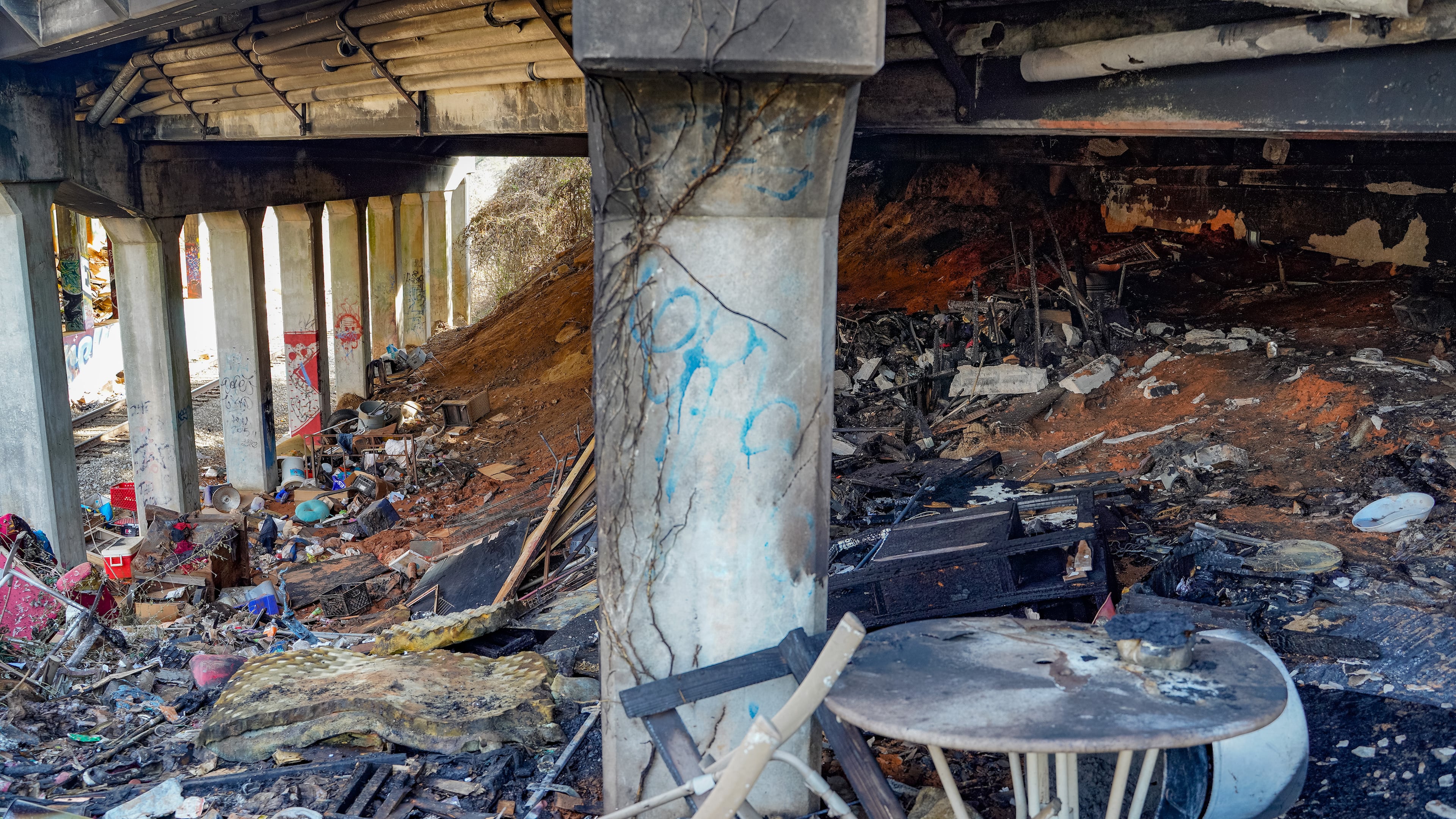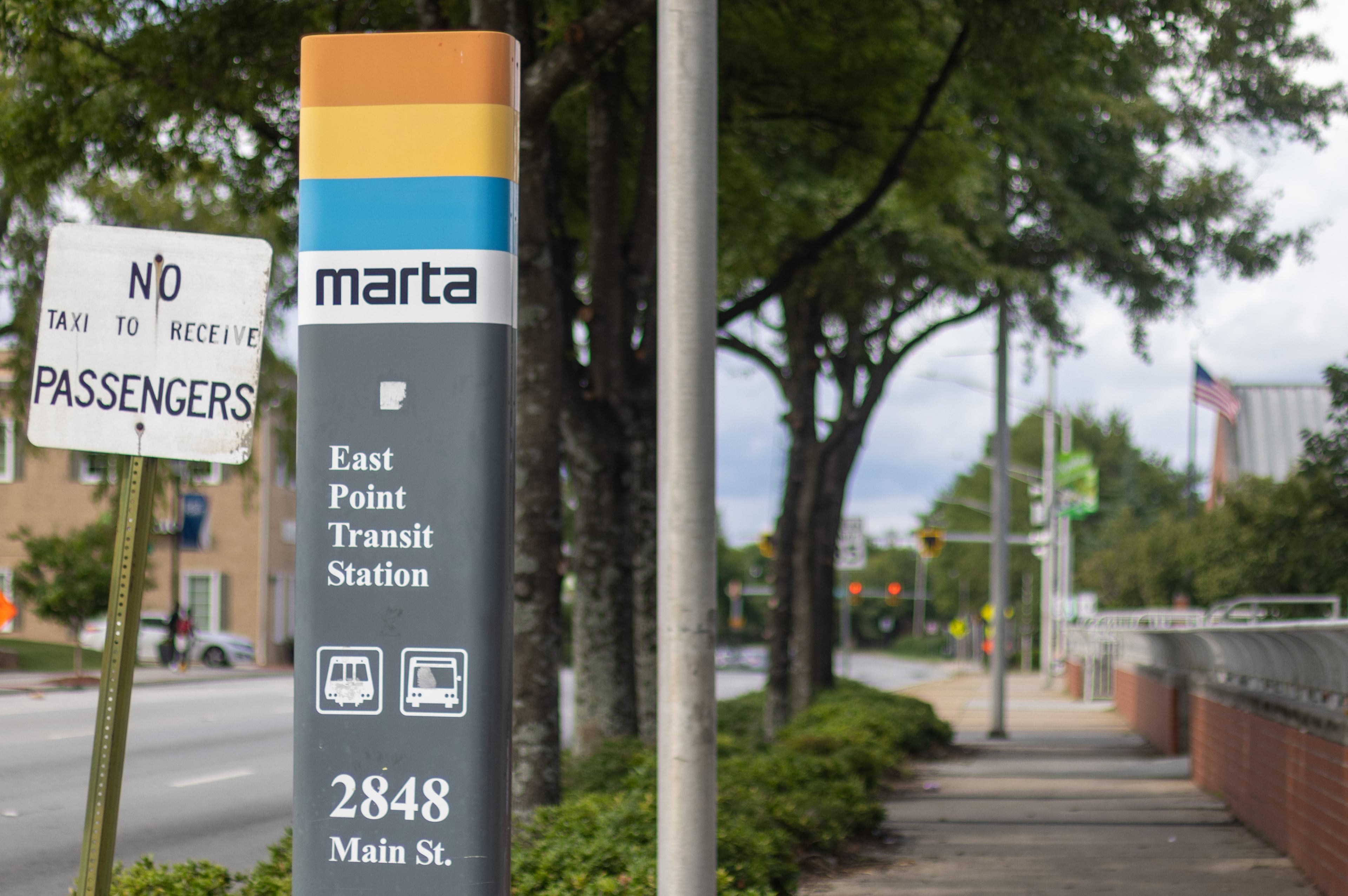City plans to clear encampments under bridges at risk of fire

Atlanta Mayor Andre Dickens said Wednesday that the city plans on clearing out homeless encampments under bridges susceptible to fire.
His statements come after a blaze engulfed a portion of Cheshire Bridge Road last month and shuttered the northeast Atlanta roadway for a second time in three years. Although investigators have yet to identify a cause, city officials and advocates suspect it was the unintentional result of unhoused Atlantans trying to keep stay warm from the brutal cold snap that has spread across the city this winter.
Dickens told The Atlanta Journal-Constitution after a press conference at City Hall that once there is deemed to be enough affordable housing units, the city will begin clearing and blocking off certain overpasses.
“The first thing is we are making sure that we have a place for people to go, which is to make sure that we open up these warming shelters as well as to provide stable housing,” the first‐term mayor said. “Once we have enough critical mass, then we will begin to strategically close down individual underpasses and bridges that are susceptible to fires, as we’ve seen.”
Dickens and Atlanta City Council announced this week millions in funding to go toward programs that help residents experiencing homelessness get off the streets, and out from under bridges.
On Monday, City Council passed legislation backed by the administration that donated a combined $2.4 million to help relocate individuals and families living under bridges, and $700,000 to support the Gateway Center which connects residents with services.
“This legislation reflects our city’s core values,” said Council member Jason Winston, who sponsored the bills. “This funding will go directly to the organization’s offering far more than just shelter — they are offering hope, support and a path to a brighter future.”
The legislation includes a request that the Atlanta Department of Public Works and Department of Transportation “take actions to clean and safeguard the areas underneath bridges and controlled access highway overpasses from future risks to public safety.”
Dickens declared on Wednesday that he was also signing an executive order to allocate another $4.6 million to city departments that oversee shelter services, warming center operations and provide wraparound services for unhoused Atlantans.
“These issues we are tackling did not pop-up overnight and they will not be resolved overnight,” Dickens said. “This is going to take some time and it’s definitely going to take some effort and a lot of hard work. But again, it is our moral obligation to assist our brothers and sisters in need.”
“Every single one of us is just really one bad day (away). One disaster, one serious illness or tragedy away from experiencing homelessness ourselves,” he said.

In the first weeks of 2024, the mayor has increased his administration’s focus on getting Atlantans experiencing homelessness into temporary or permanent housing — a feat that has grown easier after two years of working toward his goal of building or preserving 20,000 units of affordable housing.
The newest addition to the city’s projects, a community of shipping container homes in downtown that will house 40 residents, is set to open Friday.
“It is exciting because Atlanta is taking strategic steps to end homelessness through permanent solutions in safe high quality and dignified housing, which will end a person’s homelessness rather than continue to manage it, " said Cathryn Vassell, CEO of nonprofit Partners for Home.
More than 200 volunteers traversed Atlanta’s streets Monday night to conduct an annual count of the city’s homeless population that plays a large role in federal dollars municipalities receive to fight homelessness.
Dickens was among them in the cold and drizzle, donning a bright orange vest and at least three jackets. The mayor said at the press conference Wednesday that he was struck by the amount of individuals he came across that were individuals who were just shy of being able to afford housing.
“Some people had more month than money,” he said. “Essentially, we ran into some folks that had enough money to be able to stay in InTown Suites for three weeks, but each month they found themselves one week short.”
The city has also invested in eviction relief programs aimed at preventing residents from getting to that point.



